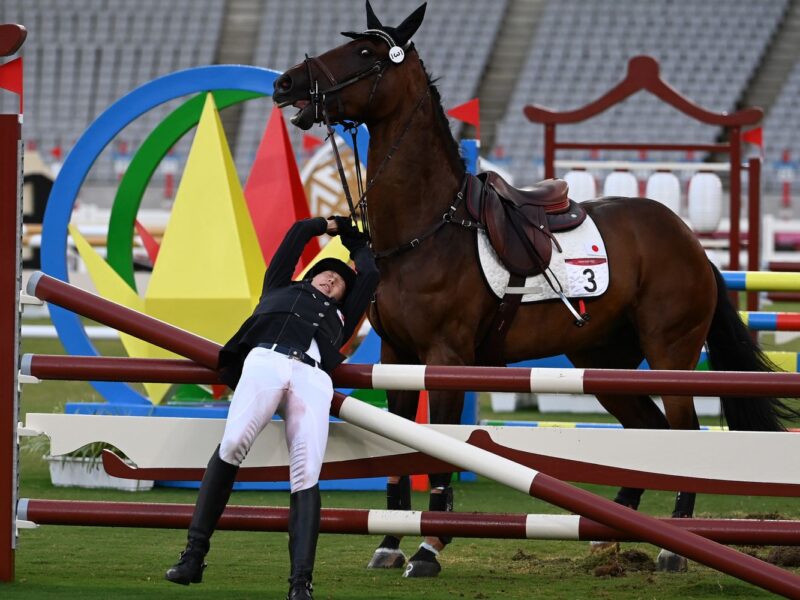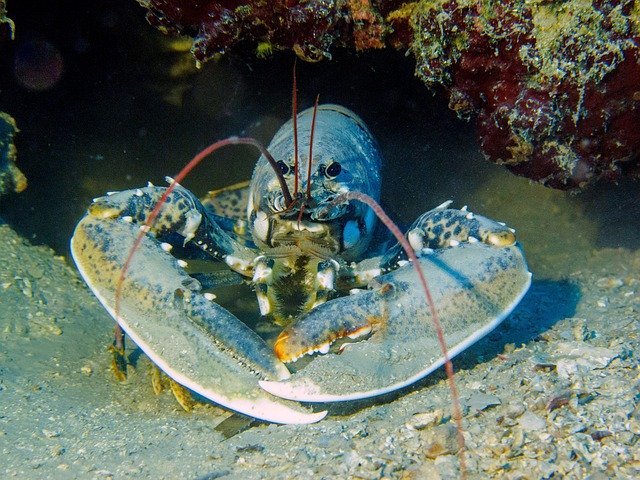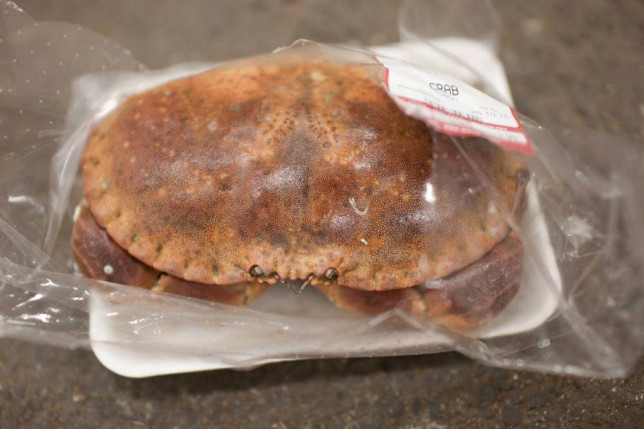Olympic Games horse cruelty should be no surprise as it is nothing new. A decade ago, there was a furore over cruel practices in the dressage event. This time it was the show jumping section of the Modern Pentathlon which raised concerns and rightly so. It is not exactly an equestrian sport per se, but a cobbled together event of outdoorsy type sports of swimming, fencing, running and shooting which some misguided person decided unnecessarily to add show jumping.
Modern pentathlon an environment for ill-treatment of the horse.
What makes the show jumping portion of the event contentious is the way it is organised which creates a perfect environment for the ill-treatment and stressing of the horses. Competitors are only given 20 minutes to bond with totally unfamiliar horses which are drawn by lot. They are taken round the course several times and swapped from rider to rider. Those involved are not necessarily the elite as owners of expensive well-trained and experienced horses are obviously reluctant to hire them out for such torture and risk of injury. The competitors who are accomplished in a wide variety of sports are not necessarily competent or experienced riders.
The incident at the centre of the furore this time involved a horse named Saint Boy ridden at the time by German rider Annika Schleu who was tipped for a medal. Saint Boy was not keen to enter the course with her, refused to jump, bucked, was sweating and was allegedly upset. Annika obviously became frustrated and stressed at seeing her medal hopes disappearing which resulted in her shouting and weeping which couldn’t have helped the demeanour of Saint Boy.
Kim Raisner, trainer, urges rider to hit “it”.
She was urged to use her crop by her trainer, Kim Raisner, who was heard to shout in the empty arena: “Go on, go on hit it”. This remark of using “it” rather than “him” is telling and expresses how the horse was viewed. The trainer Kim Raisner later allegedly hit the horse and was suspended by the governing body, the International Modern Pentathlon Union, for “appearing to strike the horse Saint Boy with her fist”.
What was surprising is that the trainer involved thought it acceptable and reasonable to punch the horse in full view of onlookers. But the equestrian industry has a habit of turning a blind eye to equine sports that obviously cause suffering , injury and death as in the case of endurance racing, cross country and dressage to name a few. Forcing horses to jump when they obviously do not want to, using the crop whip excessively, and having riders shouting, weeping and breaking down is not really the best way to behave. It all seems rather unsavoury and surely any reasonable person or experienced equestrian with a love of horses must watch this awful spectacle with great concern.
What goes on behind the scenes?
Although it is argued that all the criticism and hate directed at the rider and trainer following the incident was overblown and no harm was caused by striking the horse, it is the attitude and intent of those involved that should be the worry. Striking out at a horse either verbally or physically through frustration is a telling indication of how the animal is viewed. When things do not go right or as expected in the search for success and glory the frustration leads to the horse just becoming a piece of equipment to vent this anger. No different to a tennis player smashing a racket or a batsman their bat. It makes one wonder what goes on behind the scenes when they are willing to openly indulge in such actions.
The is no reason for horses to be involved. It is a human’s choice to push their bodies to the limit and risk injury or death in their search for glory and self-satisfaction and their pursuit of this should not involve animals. The welfare of the animals must take precedence over winning medals. The modern pentathlon should not involve horses in the first place and let’s face it there is an easy solution by replacing them with rock climbing or mountain biking.


